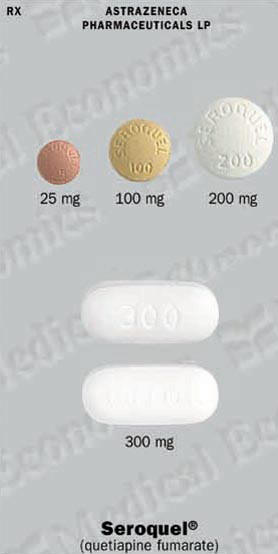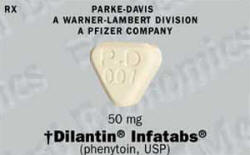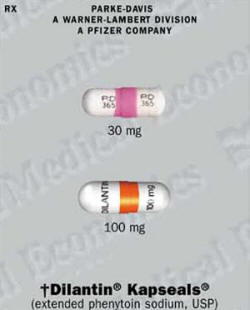Vyvanse (lisdexamfetamine dimesylate) Patient Information
Find out why Vyvanse is prescribed, side effects of Vyvanse, Vyvanse warnings, more - in plain English.
Read the Medication Guide that comes with VYVANSE before you start taking it and each time you get a refill. There may be new information. This Medication Guide does not take the place of talking to your doctor about your medical condition or your treatment.
Vyvanse full prescribing information
What is the most important information I should know about Vyvanse?
VYVANSE is a federally controlled substance (CII) because it can be abused or lead to dependence. Keep VYVANSE in a safe place to prevent misuse and abuse. Selling or giving away VYVANSE may harm others, and is against the law.
Tell your doctor if you have ever abused or been dependent on alcohol, prescription medicines or street drugs.
VYVANSE is a stimulant medicine. Some people have had the following problems when taking stimulant medicines such as VYVANSE:
1. Heart-related problems including:
- sudden death in people who have heart problems or heart defects
- sudden death, stroke and heart attack in adults
- increased blood pressure and heart rate
Tell your doctor if you have any heart problems, heart defects, high blood pressure, or a family history of these problems.
Your doctor should check you carefully for heart problems before starting VYVANSE.
Your doctor should check your blood pressure and heart rate regularly during treatment with VYVANSE.
Call your doctor right away if you have any signs of heart problems such as chest pain, shortness of breath, or fainting while taking VYVANSE.
2. Mental (psychiatric) problems including:
In Children, Teenagers, and Adults:
- new or worse behavior and thought problems
- new or worse bipolar illness
In Children and Teenagers
- new psychotic symptoms such as:new manic symptoms
- hearing voices
- believing things that are not true
- being suspicious
- new manic symptoms
Tell your doctor about any mental problems you have, or if you have a family history of suicide, bipolar illness, or depression.
Call your doctor right away if you have any new or worsening mental symptoms or problems while taking VYVANSE, especially:
- seeing or hearing things that are not real
- believing things that are not real
- being suspicious
3. Circulation problems in fingers and toes [Peripheral vasculopathy, including Raynaud's phenomenon]:
- Fingers or toes may feel numb, cool, painful
- Fingers or toes may change color from pale, to blue, to red
Tell your doctor if you have numbness, pain, skin color change, or sensitivity to temperature in your fingers or toes.
Call your doctor right away if you have any signs of unexplained wounds appearing on fingers or toes while taking VYVANSE.
What Is Vyvanse?
VYVANSE is a central nervous system stimulant prescription medicine used to treat:
- Attention-Deficit/Hyperactivity Disorder (ADHD). VYVANSE may help increase attention and decrease impulsiveness and hyperactivity in patients with ADHD.
- Binge Eating Disorder (BED). VYVANSE may help reduce the number of binge eating days in patients with BED.
VYVANSE is not for weight loss. It is not known if VYVANSE is safe and effective for the treatment of obesity.
It is not known if VYVANSE is safe and effective in children with ADHD under 6 years of age or in patients with BED under 18 years of age.
Who should not take Vyvanse?
Do not take VYVANSE if you:
- are taking or have taken within the past 14 days an anti-depression medicine called a monoamine oxidase inhibitor or MAOI.
- are sensitive to, allergic to, or had a reaction to other stimulant medicines.
What should I tell my doctor before taking VYVANSE?
Before you take VYVANSE, tell your doctor if you have or if there is a family history of:
- heart problems, heart defects, high blood pressure
- mental problems including psychosis, mania, bipolar illness, or depression
- circulation problems in fingers and toes
Tell your doctor if:
- you have any kidney problems. Your doctor may lower your dose.
- you are pregnant or plan to become pregnant. It is not known if VYVANSE will harm your unborn baby.
- you are breastfeeding or plan to breastfeed. VYVANSE passes into breast milk. Discuss with your doctor before you breastfeed while you are taking VYVANSE.
Especially tell your doctor if you take anti-depression medicines including MAOIs.
Ask your doctor or pharmacist for a list of these medicines if you are not sure.
Know the medicines that you take. Keep a list of them to show your doctor and pharmacist when you get a new medicine.
Do not start any new medicine while taking VYVANSE without talking to your doctor first.
How should I take VYVANSE?
Take VYVANSE exactly as your doctor tells you to take it.
- Your doctor may change your dose until it is right for you.
- Take VYVANSE 1 time each day in the morning.
- VYVANSE can be taken with or without food.
- VYVANSE capsules may be swallowed whole.
- If you have trouble swallowing capsules, open your VYVANSE capsule and pour all the powder into yogurt, water, or orange juice.
- Use all of the VYVANSE powder from the capsule so you get all of the medicine.
- Using a spoon, break apart any powder that is stuck together. Stir the VYVANSE powder and yogurt, water or orange juice until they are completely mixed together.
- Eat all the yogurt or drink all the water or orange juice right away after it has been mixed with VYVANSE. Do not store the yogurt, water, or orange juice after it has been mixed with VYVANSE. It is normal to see a filmy coating on the inside of your glass or container after you eat or drink all the VYVANSE.
- Your doctor may sometimes stop VYVANSE treatment for a while to check your ADHD or your BED symptoms.
- Your doctor may do regular checks of your heart, and blood pressure while taking VYVANSE.
- Children should have their height and weight checked often while taking VYVANSE. VYVANSE treatment may be stopped if a problem is found during these check-ups.
- If you take too much VYVANSE, call your doctor or poison control center right away, or get to the nearest hospital emergency room.
What should I avoid while taking VYVANSE?
Do not drive, operate machinery, or do other dangerous activities until you know how VYVANSE affects you.
What are possible side effects of VYVANSE?
VYVANSE may cause serious side effects, including:
- See "What is the most important information I should know about VYVANSE?"
- slowing of growth (height and weight) in children
The most common side effects of VYVANSE in ADHD include:
-
- anxiety
- loss of appetite
- decreased appetite
- nausea
- diarrhea
- trouble sleeping
- dizziness
- upper stomach
- pain
- dry mouth
- vomiting
- irritability
- weight loss
The most common side effects of VYVANSE in BED include:
-
- dry mouth
- trouble sleeping
- decreased appetite
- increased heart rate
- constipation
- feeling jittery
- anxiety
Talk to your doctor if you have any side effects that bother you or do not go away.
These are not all the possible side effects of VYVANSE. For more information ask your doctor or pharmacist.
Call your doctor for medical advice about side effects. You may report side effects to FDA at 1-800-FDA-1088.
How should I store VYVANSE?
- Store VYVANSE at room temperature, 68°F to 77°F (20°C to 25°C).
- Protect VYVANSE from light.
- Store VYVANSE in a safe place, like a locked cabinet.
- Do not throw away unused VYVANSE in your household trash as it may harm other people or animals. Ask your doctor or pharmacist about a medicine take-back program in your community.
Keep VYVANSE and all medicines out of the reach of children.
General information about the safe and effective use of VYVANSE.
Medicines are sometimes prescribed for purposes other than those listed in a Medication Guide. Do not use VYVANSE for a condition for which it was not prescribed. Do not give VYVANSE to other people, even if they have the same condition. It may harm them.
This Medication Guide summarizes the most important information about VYVANSE. If you would like more information, talk with your doctor. You can ask your doctor or pharmacist for information about VYVANSE that is written for healthcare professionals.
For more information about VYVANSE, go to www.vyvanse.com or call 1-800-828-2088.
What are the ingredients in VYVANSE?
Active Ingredient: lisdexamfetamine dimesylate
Inactive Ingredients: microcrystalline cellulose, croscarmellose sodium, and magnesium stearate. The capsule shells (imprinted
with S489) contain gelatin, titanium dioxide, and one or more of the following: FD&C Red #3, FD&C Yellow #6, FD&C Blue #1, Black Iron Oxide, and Yellow Iron Oxide.
This Medication Guide has been approved by the U.S. Food and Drug Administration.
Manufactured for: Shire US Inc., Wayne, PA 19087.
© 2015 Shire US Inc.
Revised January 2015
Full Vyvanse prescribing information
Detailed Info on Signs, Symptoms, Causes, Treatments of ADHD
APA Reference
Staff, H.
(2009, January 4). Vyvanse (lisdexamfetamine dimesylate) Patient Information, HealthyPlace. Retrieved
on 2026, January 14 from https://www.healthyplace.com/other-info/psychiatric-medications/vyvanse-lisdexamfetamine-dimesylate-patient-information
 The effects of Zoloft during pregnancy have not been adequately studied. If you are pregnant or plan to become pregnant, inform your doctor immediately. Zoloft should be taken during pregnancy only if it is clearly needed. It is not known whether Zoloft appears in breast milk. Caution is advised when using Zoloft during breastfeeding.
The effects of Zoloft during pregnancy have not been adequately studied. If you are pregnant or plan to become pregnant, inform your doctor immediately. Zoloft should be taken during pregnancy only if it is clearly needed. It is not known whether Zoloft appears in breast milk. Caution is advised when using Zoloft during breastfeeding. Panic Disorder and Posttraumatic Stress Disorder
Panic Disorder and Posttraumatic Stress Disorder 
 If Risperdal is taken with certain other drugs, the effects of either can be increased, decreased, or altered. It is especially important to check with your doctor before combining Risperdal with the following:
If Risperdal is taken with certain other drugs, the effects of either can be increased, decreased, or altered. It is especially important to check with your doctor before combining Risperdal with the following:
 Dosage is tailored to each individual's needs. Your doctor will monitor blood levels of the drug closely, particularly when switching you from one drug to another.
Dosage is tailored to each individual's needs. Your doctor will monitor blood levels of the drug closely, particularly when switching you from one drug to another.